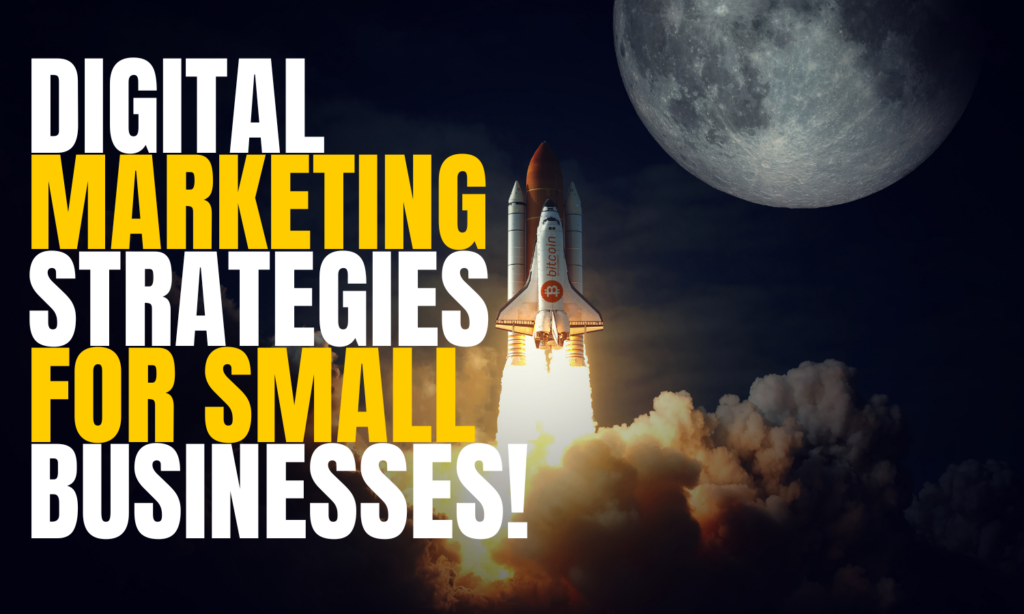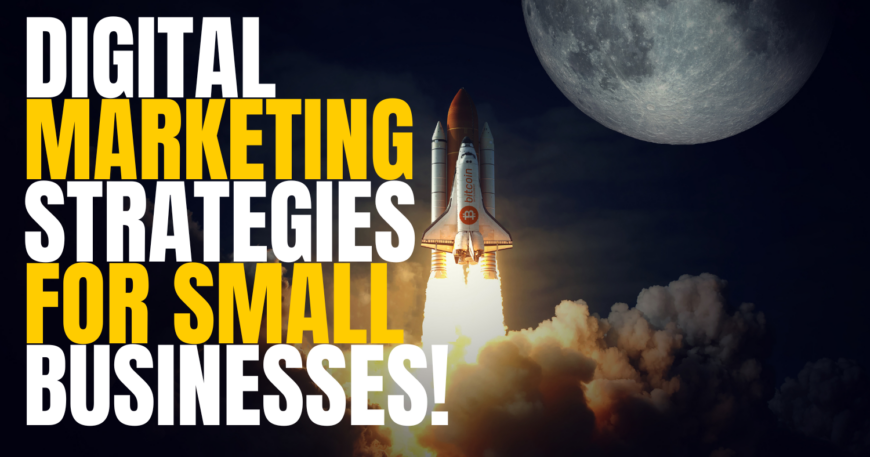
Small Businesses Digital Marketing Strategies
In the competitive digital landscape, small businesses must harness the power of digital marketing to stand out and connect with their target audience. Digital Marketing Agency ES provides expert insights and tailored strategies that help small businesses thrive online. Here’s how you can make the most of digital marketing to grow your business.
1. Social Media Marketing Mastery
Strategic Platform Use: Identifying the right social media platforms is crucial. Platforms like Instagram and Pinterest are ideal for visual products, whereas LinkedIn is more suited for B2B service providers. Digital Marketing Agency ES helps you pinpoint where your audience spends their time and tailors your social media strategy accordingly.
Engagement Over Promotion: Engagement is key to building lasting relationships online. Respond to comments, participate in discussions, and share valuable content that resonates with your audience. This approach not only enhances visibility but also fosters loyalty.
2. Content Marketing: The Core of Digital Strategy
Blog Posts and Articles: Creating informative and engaging content is essential. Address common customer questions and share insights that position your small business as a thought leader in your industry.
Video Content: Utilise video platforms like YouTube and TikTok to introduce new products, share behind-the-scenes glimpses, and educate your audience. Videos can humanise your brand and create deeper connections.
3. Email Marketing: A Direct Line to Customers
Newsletter Engagement: Keep your audience informed and engaged with regular updates about your products, services, and special offers through well-crafted newsletters.
Segmentation and Personalisation: Tailor your messages based on customer behaviour and preferences to increase relevance and effectiveness. Digital Marketing Agency ES helps design segmented campaigns that speak directly to different audience groups.
4. SEO: Enhancing Online Visibility
Keyword Optimisation: Incorporate relevant keywords into your website and content to improve visibility in search engine results, making it easier for potential customers to find you.
Local SEO: Optimise your online presence for local searches to attract nearby customers. Maintaining an updated Google My Business listing can significantly boost local visibility.
5. Paid Advertising: Boosting Reach
Google Ads: Invest in pay-per-click (PPC) campaigns to appear at the top of search results for specific keywords. This strategy ensures that your business reaches a targeted audience quickly and effectively.
Social Media Ads: Customised ads on social media platforms allow you to target specific demographics, increasing the efficiency of your advertising spend.
6. Utilising Analytics and Gathering Feedback
Data-Driven Decisions: Use tools like Google Analytics to monitor website traffic, understand user behavior, and measure the effectiveness of your marketing campaigns. These insights help refine strategies and improve outcomes.
Customer Feedback: Regularly gather and analyse customer feedback to adapt and improve your marketing strategies. This continuous loop of feedback and adaptation is crucial for growth and customer satisfaction.
Your Path to Digital Success
For small businesses, effectively leveraging digital marketing strategies offers numerous opportunities to grow and compete in the digital arena. By implementing the strategies outlined by Digital Marketing Agency ES, small businesses can enhance their digital presence and connect with more customers.
Digital Marketing FAQs
What specific social media platforms do you recommend for a business like mine, and why?
- The choice of social media platforms depends largely on where your target audience spends their time. For visually-oriented products, Instagram and Pinterest are excellent, while LinkedIn is ideal for B2B services. We would analyze your customer demographics to recommend the most effective platforms for your specific business.
How often should I post on social media to optimise engagement without overwhelming my audience?
- The optimal posting frequency can vary, but a good starting point is 3-4 times per week on platforms like Facebook and Instagram, and daily on Twitter. We’ll fine-tune this based on engagement data and your audience’s preferences to ensure we maintain interest without causing fatigue.
Can you provide examples of successful content marketing strategies you’ve implemented for other small businesses?
- Certainly! We’ve helped a boutique clothing store increase its traffic by 150% through a targeted blog series on fashion tips and trends. For a local bakery, video tutorials on cake decorating significantly boosted their online engagement and store visits.
What types of email marketing campaigns do you think are most effective for customer retention and why?
- Segmented email campaigns that deliver personalised content based on the customer’s past purchases and engagement have shown great effectiveness in retention. These emails make customers feel valued and keep them informed about relevant products, offers, and content.
How do you measure the success of SEO strategies?
- We measure SEO success through several key indicators such as increases in organic traffic, improvements in rankings for targeted keywords, and growth in conversions from SEO traffic. We use advanced analytics tools to track these metrics and continuously refine our strategies.
What budget should I allocate for paid advertising, and how do we track ROI from these ads?
- The budget can vary greatly depending on your industry, competition, and objectives. We start with a test budget to gauge effectiveness, which is usually around 10-20% of your marketing budget. ROI is tracked through conversion metrics and by measuring the cost per acquisition against the lifetime value of a customer.
What is the difference between organic and paid search strategies, and which one do you recommend for our specific situation?
- Organic search focuses on long-term growth through content and SEO, while paid search offers immediate visibility and traffic. For most businesses, a balanced approach combining both yields the best results. Your specific recommendation will depend on your immediate goals and market dynamics.
Can you explain how video content could be integrated into our digital marketing strategy?
- Video content can be used across various platforms, from your website to social media to email marketing. For example, product demos can enhance product pages, and customer testimonials can be used in targeted campaigns. We also recommend engaging, shareable videos on social media to increase brand visibility.
What tools do you use for analytics and feedback, and how do these tools help inform marketing decisions?
- We use tools like Google Analytics, SEMrush, and Hotjar for web analytics and feedback. These tools provide insights into user behaviour, campaign performance, and website usability, which guide us in making informed decisions to optimize campaigns and improve user experience.
How quickly can we expect to see results from implementing these digital marketing strategies?
- Some strategies like paid ads can yield immediate results, while others like SEO and content marketing take longer, usually a few months, to see significant changes. We set realistic expectations and provide regular reports so you can see progress and understand the value of long-term strategies.



